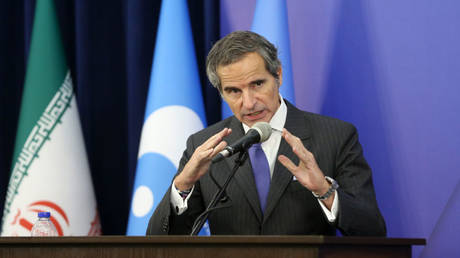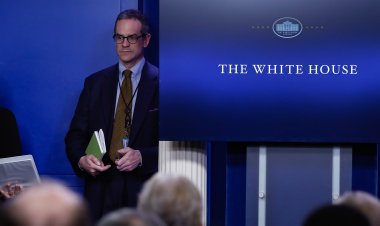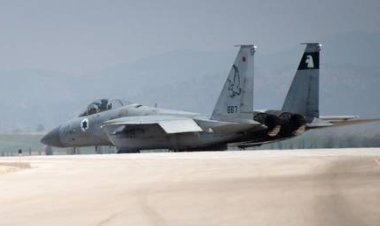IAEA Chief Says Iran’s Nuclear Facilities ‘Should Not Be Attacked’
IAEA Director Rafael Grossi has issued a warning regarding assaults on Iranian nuclear facilities.. source:TROIB RTS

Rafael Grossi, the head of the International Atomic Energy Agency, has cautioned Israel against attacking Iranian nuclear installations, emphasizing that such actions are prohibited by international law and could have severe ramifications for the entire region.
Speaking at a press conference in Tehran during his two-day visit to discuss Iran’s nuclear program, Grossi stated, “Such attacks could have very serious radiological consequences. The IAEA and its member states have previously expressed strong opposition to such actions.” This comment was made in response to inquiries regarding the possibility of an Israeli strike on Iran’s nuclear facilities.
Tensions between Tehran and West Jerusalem have heightened since the onset of the latest Israel-Hamas war in Gaza last year, along with Israel's military actions in Lebanon aimed at Hezbollah. Iran has condemned Israel for both conflicts, and the two nations have engaged in missile exchanges multiple times this year.
Israeli officials have previously identified Iran’s nuclear sites as potential targets, but reports suggest they have been urged by the U.S. to refrain from acting on these threats. Recently, however, Israel’s newly appointed defense minister, Israel Katz, stated that Iran is “more exposed than ever to strikes on its nuclear facilities,” asserting that Israel has an opportunity “to achieve our most important goal – to thwart and eliminate the existential threat to the State of Israel.” His remarks have sparked concerns that West Jerusalem may soon take action against the sites.
During the press conference, Grossi highlighted that current regional tensions “show that the space for negotiation and diplomacy” regarding Iran’s nuclear program “is getting smaller.”
The West has long viewed Iran’s uranium enrichment activities as a covert initiative to develop nuclear weapons. Although the 2015 nuclear agreement with world powers placed restrictions on Iran's program in exchange for significant sanctions relief, the deal collapsed after the U.S. withdrew in 2018. This led Iran to accelerate its enrichment efforts, which, according to Grossi, are now approaching the threshold needed for weaponization.
The IAEA has been advocating for increased monitoring and collaboration at Iranian nuclear sites. Grossi expressed his determination to make his visit a “success” in this regard, considering the “serious circumstances in the region.”
Iran has consistently denied intentions to develop a nuclear weapon, asserting that its enrichment program is entirely peaceful and aimed at civilian use. After meeting with Grossi later on Thursday, Iranian Foreign Minister Abbas Araghchi stated that Iran is open to cooperating and negotiating with the IAEA regarding its nuclear program, but emphasized that it will not do so “under pressure and intimidation.”
Thomas Evans for TROIB News












